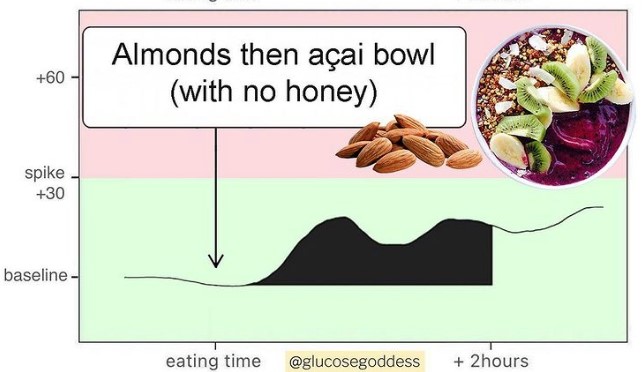Perimenopause may happen earlier than you think: the ‘swinging’ hormones at it again!
Most people think that menopause is something that happens late in a woman’s life – and they think of physical symptoms like hot flushes and changes in menstruation.
YES! But there’s more to it – there’s a long period of ‘peri’ menopause that can start a decade or more before women (and men) expect it. And it has a whole range of subtle yet debilitating symptoms.
‘The ‘Peri’ in perimenopause means ‘around’ about the time of menopause. This ‘around about’ time can start 10 to 12 years before you actually stop having your periods altogether. The medical definition of menopause itself is when you have completely stopped menstruating for 1 year.
The symptoms of perimenopause are subtle
Typically a woman may start feeling changes around 42 years old and these changes shift and sway until about 50 to 55 years old. Of course this is only average so you will experience your own little hormonal dance. You may start to feel changes earlier or later and in different ways.
Distressing symptoms you may encounter can range from sleep disturbances, hot flushes, migraines, fatigue, vaginal dryness and breast pain to weight gain, aching joints and muscles, mood changes like anxiety and depression, hair thinning, poor memory or brain fog and low libido.
Youch, you say! yet many women find they have surges of increased energy and renewed enthusiasm for life too. However you’re probably not the person reading this.
Perimenopause is underdiagnosed by GPs
Despite 50% of the population being biologically bound to go through a decade or more of perimenopause on the way to menopause, it’s significantly under diagnosed – with many of its most debilitating symptoms being treated piecemeal.
As symptoms like fatigue, sleep disturbance and depression can hugely disrupt your quality of life, getting to the root cause is important.
Lesser known (or recognised) symptoms – from hives to anxiety – can also be debilitating.
Naturopathic support can make a big difference
The full list of symptoms can seem overwhelming for sure, but don’t panic. Most women have just a few of these intrusions in varying degrees.
I’ve been through this phase of life and have helped many women negotiate their way with greater comfort and self understanding.
Many perimenopausal symptoms are exacerbated by our modern lifestyle, with too little exercise, too much stress and too many ultra-processed foods.
Hormones, hormones
As the ovarian hormones change their balance throughout your lifespan and especially at this perimenopause time you may notice new or exacerbated symptoms like skin itching or hives, hayfever or anxiety. This can be from an increase in oestrogen as part of early fluctuations of hormones.
Or decreasing oestrogen may cause irritability and depression with worsening night sweats and hot flushes.
There are many hormones beyond oestrogen and progesterone that influence your well being. Examples are testosterone, follicle stimulating hormone, lutenizing hormone, cortisol, thyroid hormone and the list goes on. Sometimes it can be helpful to test for these at specific times of the day at specific times of your cycle.
To test for hormones or not?
Hormonal blood tests are notoriously inaccurate as our hormones fluctuate enormously depending on the time of our menstrual cycle, time of life, stress and exercise levels and so on.
Carefully selecting a hormonal blood test at a particular time of your cycle may be helpful to understand that moment in time. Saliva testing at intervals over a month in your own home may give more useful information for your practitioner to help interpret. However this can become expensive.
An update on Hormone Replacement Therapy
Headlines about the cancer risks of HRT made many people – including many GPs – scared of Hormone Replacement Therapy. This was from the Women’s Health Initiative study conducted in the 1990s in the USA and reported about in 2002.
The results have since been re-examined to reveal that if used appropriately, HRT in the early menopausal years may confer heaps of benefit without the big risks.
Many complementary medicines can be used in conjunction with Menopausal Hormone Therapy (MHT – the latest terminology for HRT) to improve your benefits.
Whole-person naturopathic support
I help you to understand subtle changes at work in your body/mind and plot ways to guide you gently and effectively through experiences that may feel overwhelming at times.
There are many lifestyle approaches like exercise and stress management that are valuable.
Selected, quality herbal medicines and other supplements can support you through the perimenopausal time.
Examples are Lemon balm (Melissa officinalis), Lavender (Lavandula officinalis), Withania/Ashwaganda (Withania somniferum), Passionflower (Passiflora incarnata), magnesium and calcium in the correct form and dose.
Many of these can be used safely in conjunction with HRT/MHT. Check with your practitioner first.

Eating ‘well’ can make a huge difference – manage the roller coaster of sugar cravings by paying attention to your protein intake and getting the right balance of good oils and high fibre carbohydrates. Improving your digestive process overall will help your hormonal transition as well as your overall health. All your body’s systems are connected, after all.
Naturopathic approaches can help calm the tidal waves of change to allow more manageable curves in your day.
What you can do to understand and support your health professional(s)
Taking the following steps will help you and your practitioner look for patterns to understand the underlying hormonal changes going on without the need for expensive blood tests.
- Learn about the full range of symptoms, so you know what to watch for.
- Track your periods – keep a diary electronically or written to keep an eye on changes over time. Track the number of days you bleed, whether light or heavy (how many changes of pads/tampons/cups) you use and how long between periods
- Keep a symptom diary in relation to your periods. Note if symptoms occur regularly before, during or after your period.
- Take your temperature daily at the same time in bed before you rise. This can help you see when and if ovulation takes place (necessary for healthy progesterone to be produced).
Some useful resources
Lara Briden has some great resources, including her Hormone Repair Manual and other helpful books .
Female, over 40 and feeling SH*T?
It might be perimenopause, not a nervous breakdown or post-COVID stress and disruption.
Talk to your friendly online naturopath about your physical and emotional health challenges – there could be a pattern indicating that you’re in the early stages of perimenopause.




